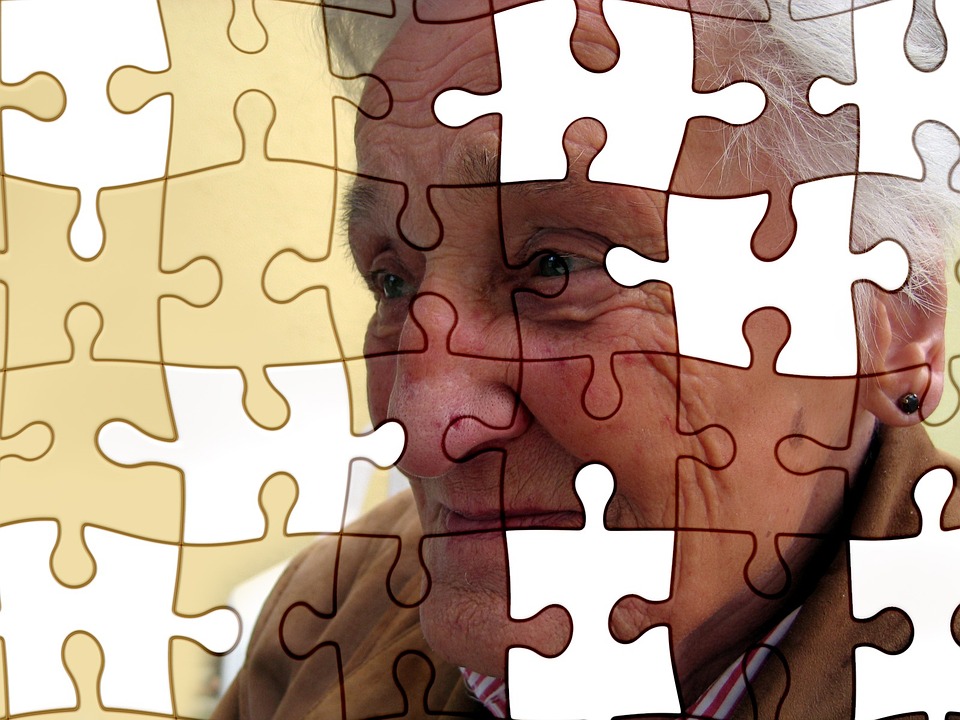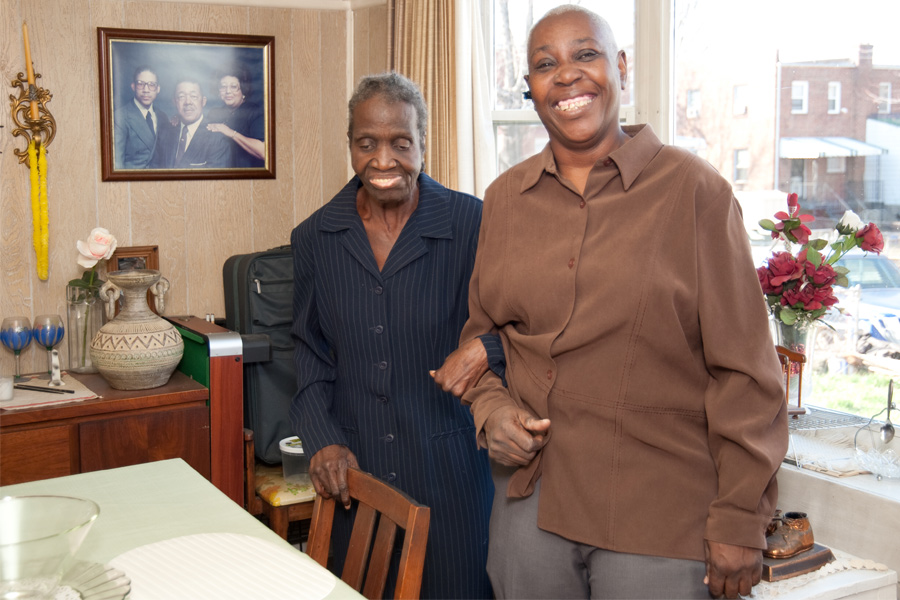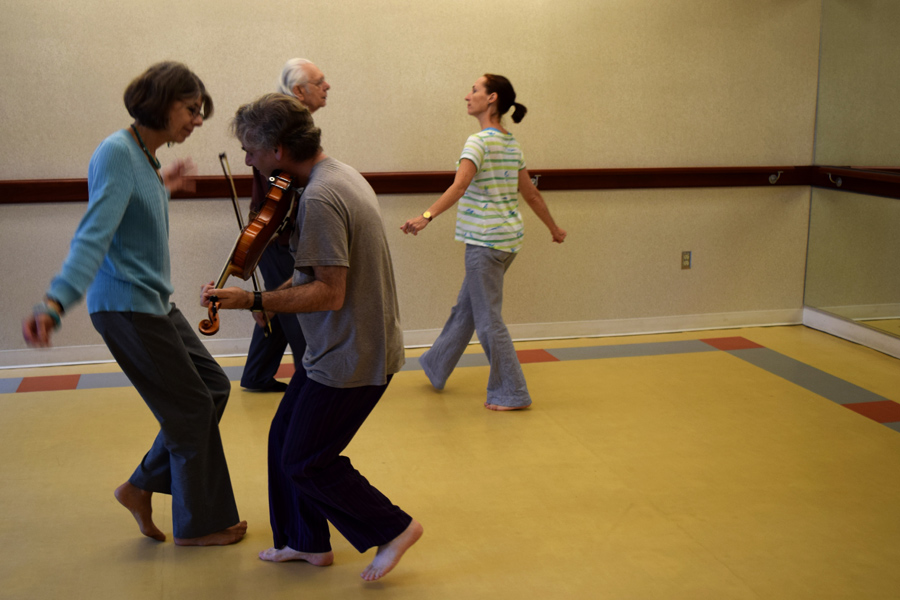Four Myths and Four Action Steps on Memory Loss

 During my career as a social worker, I have heard countless older adults, family members, and (more disturbingly) some health professionals repeat myths about memory loss.
During my career as a social worker, I have heard countless older adults, family members, and (more disturbingly) some health professionals repeat myths about memory loss.
Below, you’ll find four myths, and four actions YOU can take if you, or someone you love, has memory problems.
Myth 1 – Serious memory loss is a normal part of aging.
Minor changes in memory do occur with age. It’s not unusual for older adults (or anyone) to occasionally forget appointments, have difficulty finding words, or lose their keys. What is unusual—and a cause for concern—is if a person forgets the identities of close friends or family, gets lost in familiar surroundings, thinks it’s the afternoon when it’s actually night, or forgets how to use common objects (e.g. keys, telephone, etc.). Serious changes in memory like these are not a normal part of aging, and should be evaluated by a physician. Learn more about normal age-related memory changes via the American Psychological Association and the Cleveland Clinic.
Myth 2 – If it’s memory loss, it must be Alzheimer’s.
While Alzheimer’s arguably may be the best known cause of memory loss, it is not the only one. Scores of medical complaints cause memory changes and confusion. These include infections, vitamin deficiencies, and medication interactions which can cause delirium. Also included are Lewy Body disease, stroke (a.k.a. vascular dementia), and Parkinson’s disease. Along with Alzheimer’s, these diseases cause dementia. Learn more about dementia-causing diseases via the Alzheimer’s Association. Learn more about delirium via the Mayo Clinic.
Myth 3 – There isn’t a cure, so why see a doctor?
While medical researchers have not yet found a cure for dementia-causing diseases like Alzheimer’s and Lewy Body disease, they have developed medications that may temporarily relieve related symptoms like agitation, sleeplessness, and depression. A doctor can determine which medication is most appropriate.
A doctor also can run diagnostics to test for delirium. Memory loss and confusion caused by delirium may be reversed if the underlying condition (e.g. infections, vitamin deficiencies, medication interactions, etc.) is quickly treated and resolved. Learn more about medication treatments for dementia via the Mayo Clinic. Learn more about delirium via the Mayo Clinic.
Myth 4 – Memory loss can be diagnosed by a simple test.
Many professionals, and some nonprofessionals, are familiar with memory screening tools like the Mini Mental Status Exam or the Clock Drawing Test. While these tools (when administered by a qualified individual) can suggest the need for more testing, they cannot, by themselves, diagnose memory loss. A complete diagnostic workup for memory loss includes blood and neurological tests, a family history review, a complete physical, and a mental status exam. Learn more about how doctors diagnose memory problems via the Alzheimer’s Association.
So, what can you do if you or a loved one has symptoms of memory loss?
Action Steps to Take for Memory Loss
Action Step 1 – Get evaluated.
If you, or your loved one, experiences significant changes in memory, it’s imperative to get an evaluation from a physician (preferably a geriatrician or a neurologist) as soon as possible. Memory loss and confusion are caused by a variety of medical conditions, including Alzheimer’s, infections, anxiety, insomnia, and medication interactions. A physician can sort out what’s causing the memory loss, prescribe appropriate treatment, and in some cases (depending on the cause of the memory loss) may be able to reverse symptoms. Find a neurologist or geriatrician who accepts Medicare via Medicare’s website.
Action Step 2 – Get Support.
You don’t need to go through this alone. Supportive services exist throughout the DC metro area for older adults with dementia and for caregivers. These include support groups, information & referral, community services (e.g. home-delivered meals, personal care, etc.), and care management. Contact Iona’s Information & Referral Helpline to learn more about local supportive services. Alzheimer’s-specific information and referral also is available from the Alzheimer’s Association’s 24/7 Helpline.
Action Step 3 – Plan for the future.
Everyone, not simply those with memory loss, can benefit from making plans as to how, and from whom, one would like to receive care if and when care is needed. Professionals call this type of planning, “long-term care planning.” Learn more about long-term care planning via the federal Administration for Community Living. Learn about Alzheimer’s-specific long-term care planning via the National Institute on Aging. A Geriatric Care Manager or Aging Life Care Expert also can help with planning.
Action Step 4 – Advocate
Right now, Congress is considering if and how to fund a variety of federal programs that benefit older adults with dementia, including dementia research by the National Institutes of Health, patient-centered dementia research by the Patient Centered Outcomes Research Institute, and Alzheimer’s education via the Prevention and Public Health Fund. Learn about other federal programs benefiting older adults via Iona’s More than Medicare blog post. Get tips on how to advocate via this advocacy blog post up on Iona’s blog.
Do you have other actions steps to share when dealing with memory loss? Let us know in the comments!
By Leland Kiang, LICSW
Leland Kiang, LICSW is manager of Iona’s Information & Referral Help Line, whose staff answers questions about senior services throughout the DC metro area. Leland also has written articles for BIFOCAL, Unite Virginia, and the National Resource Center on LGBT Aging.
Related Articles

The Stories of Dementia in the District

A Couple’s Vows Create Opportunities to Age Well

Can You Imagine Taking Three Buses to Get to Iona?

